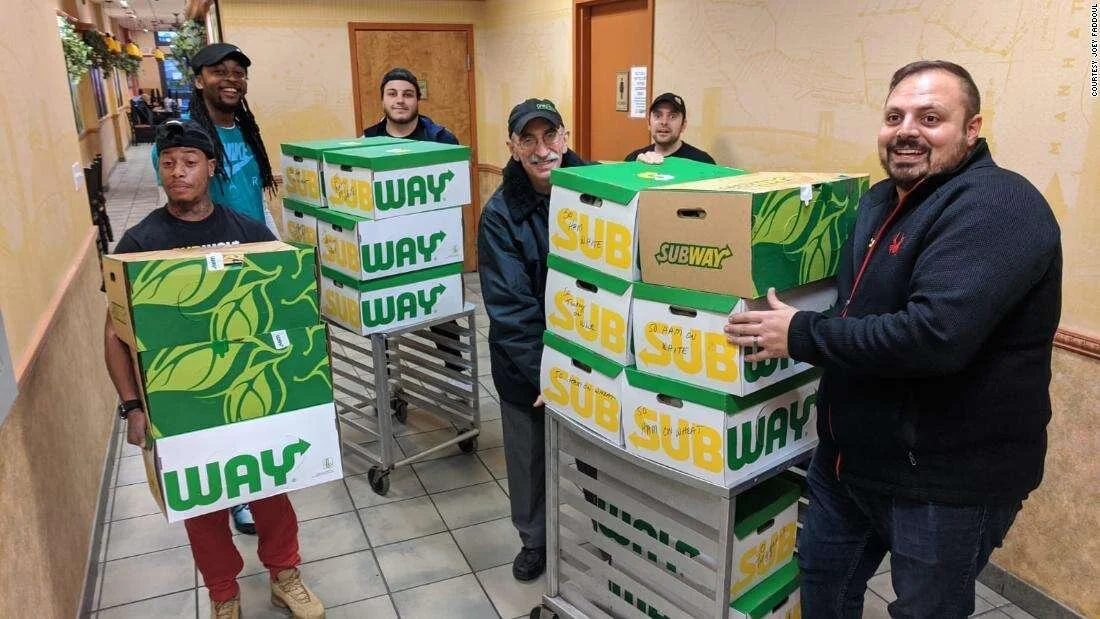Dave and Marge Belew met during high school, where they graduated in 1949. The couple, now both 88, have been married for 67 years.
When Marge’s health began to decline a five years ago, she moved to a local retirement village, Westover, in their home of Hamilton, Ohio. Before Coronavirus, Dave visited his wife daily, sometimes twice a day, and they often had lunch or dinner together. Now that non-residents aren’t allowed for visiting hours, their communication has become entirely remote. Many of the couples at Westover have taken to social media to communicate, but the Belews prefer music.
Now amidst their separation, Dave gives Marge a call every evening at 6 p.m. They chat about their day before he asks, “Are you ready for a concert?” She always says yes.
According to the Hamilton Journal News, Belew always begins with “Margie” before playing 4-5 other songs and ending with a hymn. “As his weathered fingers float across the keys, if only for 20 minutes or so, the years slip away and the Belews forget about the coronavirus. Life is normal again. And right now, ‘normal’ has never sounded better,” reads the feature.
Dave and Marge have been a fixture of the Hamilton community for decades. Called “Mr. Hamilton” by the Journal News in the past, Belew served as longtime President of the Beckett Paper Company until his retirement in 1992, while Marge stayed at home to raise their children.
Belew’s commitment to growth and education throughout the community for so many years was the catalyst for his reception of the “Lifetime Hero of Character” award last fall, presented by the West Chester, Ohio, Character Council. “Volunteering is my number one hobby,” he said at the time. “Volunteering is the rent we pay for occupying our spot on this Earth.”
In addition to being an active member of his church and the local chapter of both the American Heart Association and Boys & Girls Club, Belew’s love of music, a love of which he shares with Marge, contributed to his reception of the award.
Music has always been a part of life for the couple. Dave learned to play piano by ear when he was just six and Marge took lessons at the Colorado Women’s College. They had a beloved “music room” in their house, a space dedicated to playing and singing, and both sang in their church choir for over 60 years. Dave is a pianist and Board member of the Hamilton & Fairfield Symphony Orchestra, and he enjoys putting on concerts for local fundraisers as well as for the residents of Westover. The couple has even endowed a college scholarship at Hamilton High School, their shared alma mater, for a graduating senior intending to study music.
Like many families, the Belews have been hurt by the impact of Coronavirus. “Every morning I think this is like a real bad dream or a nightmare,” Dave said to the journal. “It’s very scary, a real battle, a real war. I pray for it to end.”
But this connection brings great comfort for both of them. One evening as Dave played “Over the Rainbow” to Marge, she held out the phone for an aid to listen. After he finished playing, she said to the aid, “Oh, yes, he loves me.”
“When I play a song, it triggers a certain memory, reminds me of the love and experiences we have had together,” he shared to the journal. “Music has been very important all of our lives and even more now. Faith has brought us together and music will help us bounce back.”
When asked what he would play after “Margie” for that night’s concert he wasn’t sure yet – the only thing he was thinking about was spending time with his wife.
Want to share a story with us? Submit news here.
















